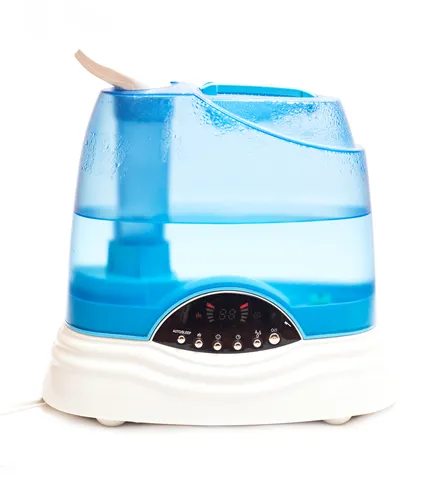Do you (or does your partner) snore? Sleeping beside someone who snores can be annoying and frustrating, to say the least. The quality of your sleep is seriously compromised when sleeping beside someone with a snoring problem. Everyone knows the benefits of a good night sleep. While many people think that snoring is uncontrollable, that’s simply not the case. There are many things you can do to help reduce snoring.
If you’re looking to curb the nighttime noise in your home, consider these tried and tested methods:
1. Avoid Alcohol
Drinking alcohol before bedtime relaxes the muscles in your face and throat. The relaxation interferes with breathing and makes you go into a deeper sleep. Once you’re in a deep sleep, you’re more likely to snore. If you really enjoy a glass of wine or a beer before bed, try consuming it at least an hour before you hit the hay.
2. Use a Humidifier
Keeping the air in your bedroom moist can really help to reduce snoring. Dry air irritates membranes in the nose and throat, making you much more susceptible to snoring. Consider purchasing a humidifier which will make breathing easier and snoring less likely.
3. Shower Before Bed
Taking a hot shower right before bed will help open the nasal passages and make breathing easier when you go to bed. Make the water as hot as possible so the steam clears out all of the passage ways. Some experts suggest rinsing your nose out with a saltwater rinse in the shower for even better relief.
4. Elevate Your Head
Many experts agree that raising your head 4 inches can help reduce snoring. This position makes breathing easier and forces your tongue and jaw to drop downwards instead back into your throat. For a temporary solution, consider adding an extra pillow on top of the one you use now. If you notice an improvement, there are specially designed pillows available to keep your head in the right position during the night.
5. Sleep on Your Side
Many people have a hard time sleeping on their side but, if you can get a restful night sleep in this position, it can really help to eliminate snoring. Sleeping on your back makes your tongue drop back into your throat which blocks your breathing and makes snoring more common. Keep your airway clear by sleeping on your side.
6. Lose Weight
This may seem like a difficult task but heavier individuals are more prone to snoring. If you can lose the weight, you might lose the snoring as well. Experts say that losing even a little bit of weight can reduce fatty tissue in the back of the throat which will help clear your airways and ease your breathing.
7. Stay Hydrated
Drinking plenty of water throughout the day (and especially right before bed) can work wonders on reducing snoring. Secretions in your nose become stickier when you’re not hydrated properly, making you more susceptible to snoring. How much water is enough? The Institute of Medicine reveals that healthy women should consume 11 cups of water a day (this includes water from all foods and beverages) and men should consume 16 cups.
8. Try Throat Exercises
Dedicating 30 minutes a day to throat exercises will have a significant impact on the frequency of your snoring. One exercise is saying each vowel (a-e-i-o-u) out loud several times. Another is placing the tip of your tongue behind your top teeth and sliding your tongue backwards for 3 minutes a day. Opening your mouth and moving your jaw to the left and right and holding on each side for 30 seconds will also help to reduce snoring.
9. Get a Nightguard
If you’ve tried most of the easy methods on this list and your snoring still hasn’t improved, talk to your doctor about getting a nightguard. These guards look similar to a mouthguard worn by athletes. They help keep your airway open by forcing your lower jaw and tongue forward during the night.
10. Don’t Overwork Yourself
Do you notice your snoring is louder or more frequent when you’re stressed out or overworked? This is because (similar to alcohol) your body and mind are exhausted when you hit the bed at night, forcing you to go into a deep sleep. Once you’re in a deep sleep, the chances of snoring increase considerably. Try and refrain from working crazy hours or playing sports/exercising right before bed.
Like this article? You might like these as well:













